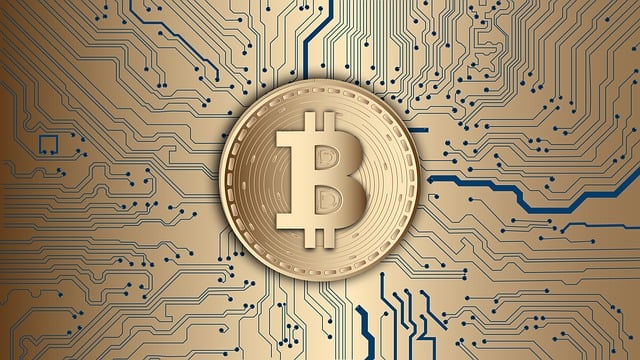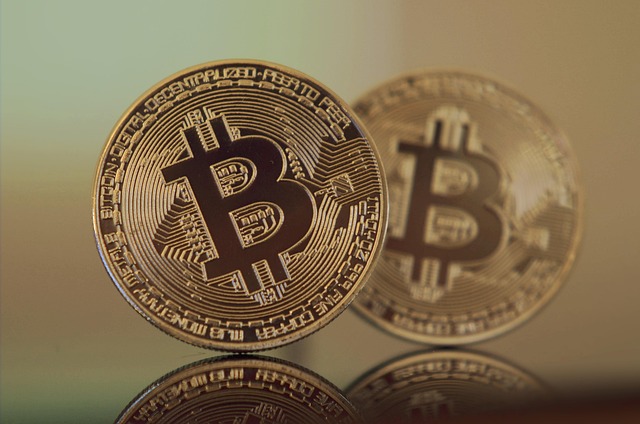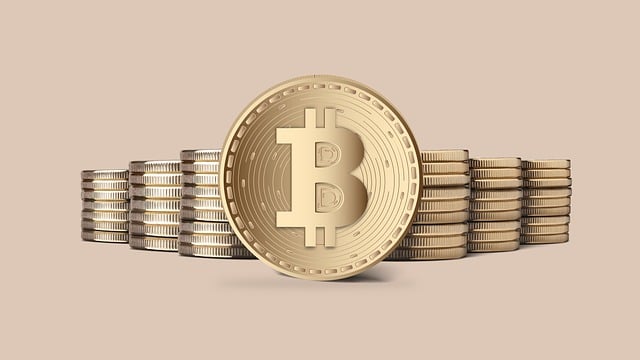Bitcoin, as a decentralized digital currency, offers global financial autonomy and security through blockchain technology, making it resilient to geopolitical uncertainties. While seen as a haven asset during international tensions, sanctions or policy shifts can dramatically affect its value. Global geopolitical tensions drive demand for Bitcoin as a tool for financial inclusion and a hedge against traditional fiat currencies. Historical data shows Bitcoin's role as a safe haven during crises, but inconsistent global regulations create challenges for its expansion. The future of Bitcoin hinges on how governments regulate it, with rising global tensions potentially boosting its adoption despite market volatility.
“Global geopolitics and Bitcoin are inextricably linked, with international tensions profoundly influencing crypto trends. This article delves into the global reach and sensitivity of Bitcoin to geopolitical events, exploring its role as a financial inclusion tool during political turmoil. We analyze the impact of power struggles on decentralized finance (DeFi) and Bitcoin‘s position within it. Through case studies, we examine market responses to major crises, and the evolving regulatory landscape shapes Bitcoin‘s future during uncertain times.”
- Understanding Bitcoin's Global Reach and Its Sensitivity to Geopolitical Events
- The Impact of International Sanctions on Bitcoin Adoption and Trading
- Crypto as a Tool for Financial Inclusion Amidst Political Turmoil
- How Global Power Struggles Affect Decentralized Finance (DeFi) and Bitcoin's Role
- Case Studies: Examining the Response of Bitcoin Prices to Major Geopolitical Crises
- Regulatory Landscape: The Role of Governments in Shaping Bitcoin's Future During Uncertain Times
- The Future of Bitcoin: Navigating Global Geopolitics and Its Potential Impact on Cryptocurrency Trends
Understanding Bitcoin's Global Reach and Its Sensitivity to Geopolitical Events

Bitcoin, often hailed as a decentralized digital currency, operates with a global reach, transcending traditional financial boundaries. Its underlying technology, blockchain, ensures transparency and security, making it attractive to users worldwide who seek financial autonomy and protection from geopolitical uncertainties. However, Bitcoin’s sensitivity to geopolitics is undeniable. International tensions, sanctions, and political instability can significantly impact its price and adoption rates.
When geopolitical events disrupt traditional financial systems, investors often turn to Bitcoin as a haven asset. Conversely, escalating conflicts or policy changes targeting cryptocurrency exchanges and mining operations can lead to sharp drops in Bitcoin’s value. Understanding these dynamics is crucial for gauging the future trends of this volatile digital currency in an increasingly interconnected world.
The Impact of International Sanctions on Bitcoin Adoption and Trading

International sanctions have significantly impacted the adoption and trading of Bitcoin, particularly in countries subject to these restrictions. When a nation faces economic penalties from other powers, its financial system is often crippled, leading many residents to turn to alternative assets like cryptocurrencies as a means of preserving wealth and protecting against inflation.
Bitcoin, with its global reach and decentralized nature, becomes an attractive option for those looking to bypass traditional banking systems. Sanctions can drive up the demand for Bitcoin in targeted countries, potentially increasing its value. However, they also create uncertainty and volatility in crypto markets, as seen in past cases where rapid changes in geopolitical dynamics led to significant price fluctuations in Bitcoin and other cryptocurrencies.
Crypto as a Tool for Financial Inclusion Amidst Political Turmoil

In times of political turmoil and international tensions, traditional financial systems often become vulnerable or inaccessible for many. Here, cryptocurrency like Bitcoin steps in as a potential tool for financial inclusion. Its decentralized nature allows individuals to transact and store value independently of central authorities, offering an alternative to fiat currencies that may be subject to government interference or economic instability.
Bitcoin provides a level of accessibility and privacy that can empower people living under oppressive regimes or those excluded from traditional banking systems. It enables peer-to-peer transactions, bypassing state-controlled financial institutions, and potentially fostering a more resilient and inclusive global economy. As political tensions rise worldwide, Bitcoin’s ability to operate independently of geopolitical boundaries could make it an attractive option for those seeking financial freedom and security.
How Global Power Struggles Affect Decentralized Finance (DeFi) and Bitcoin's Role

Global power struggles and geopolitical tensions often create economic uncertainty, which can significantly impact decentralized finance (DeFi) and cryptocurrencies like Bitcoin. As countries engage in trade wars, political rivalries, or regional conflicts, financial markets become volatile, leading to shifts in investment patterns. DeFi, being an innovative and relatively new concept, is particularly susceptible to these changes as it relies heavily on global liquidity and user participation.
Bitcoin, with its decentralized nature, has gained traction during times of geopolitical turmoil as a hedge against traditional fiat currencies. Its limited supply and resistance to government intervention make it an appealing asset for investors seeking safety and independence from state-controlled economies. As international tensions rise, Bitcoin’s role as a store of value and a potential safe haven could become increasingly prominent, shaping the overall crypto market trends and DeFi ecosystem.
Case Studies: Examining the Response of Bitcoin Prices to Major Geopolitical Crises

In recent years, the global geopolitical landscape has significantly impacted financial markets, and Bitcoin, as a decentralized digital currency, is no exception. Examining historical data during major crises provides valuable insights into how international tensions influence cryptocurrency trends. For instance, during the 2014-2015 Ukrainian crisis and subsequent annexation of Crimea by Russia, Bitcoin experienced a surge in value, reflecting investors’ shift towards a store of value outside traditional financial systems. This event underscores Bitcoin’s potential as a safe haven asset during times of geopolitical uncertainty.
Moving forward, the US-China trade war that escalated throughout 2019 and 2020 offers another compelling case study. As tensions rose, Bitcoin prices saw fluctuations, with some analysts attributing this to increased investment from Chinese entities seeking to diversify their holdings away from the renminbi. Furthermore, geopolitical risks in the Middle East, such as the 2019-2020 Iran crisis, also led to heightened Bitcoin volatility, indicating a global trend where investors worldwide turn to cryptocurrencies as a response to international conflicts and economic sanctions.
Regulatory Landscape: The Role of Governments in Shaping Bitcoin's Future During Uncertain Times

During uncertain geopolitical times, governments worldwide play a pivotal role in shaping the future of Bitcoin and the broader cryptocurrency market. Regulatory actions and policies can either foster or hinder the adoption and growth of digital currencies like Bitcoin. In response to growing concerns about financial stability, cybersecurity, and potential misuse for illicit activities, many nations have introduced or proposed regulations aimed at regulating cryptocurrencies. These measures range from enhanced anti-money laundering (AML) and know-your-customer (KYC) requirements to complete bans on cryptocurrency trading and ownership.
The regulatory landscape varies significantly across countries, with some embracing Bitcoin and other cryptos as a legitimate asset class while others remain skeptical or outright hostile. This dichotomy creates a complex environment for Bitcoin’s global expansion. Uncertain regulatory attitudes can lead to market volatility and investor uncertainty, making it challenging for Bitcoin to achieve widespread acceptance and institutional adoption. Conversely, clear and supportive regulations can stimulate innovation, attract investment, and foster mainstream financial inclusion—all factors that contribute to Bitcoin’s long-term success.
The Future of Bitcoin: Navigating Global Geopolitics and Its Potential Impact on Cryptocurrency Trends

As global geopolitics continues to evolve, the future of Bitcoin and cryptocurrencies remains an intriguing prospect. International tensions often drive market dynamics, and crypto assets have become increasingly intertwined with geopolitical strategies. Bitcoin, as a decentralized digital currency, offers a unique escape from traditional financial systems controlled by nations. Its borderless nature challenges established power structures, which can both hinder and promote its adoption. With rising geopolitical conflicts, investors may turn to Bitcoin as a hedge against economic uncertainties, driving up demand and potentially pushing its value higher.
Navigating these tensions requires careful observation of global events. Geopolitical shifts can significantly impact cryptocurrency trends, with Bitcoin often leading the charge in times of political or financial turmoil. As countries implement regulatory frameworks for cryptocurrencies, the global landscape will shape how Bitcoin and other digital assets are perceived and utilized. This ongoing interplay between geopolitics and Bitcoin promises an exciting yet unpredictable future for crypto enthusiasts and investors worldwide.
Global geopolitics play a significant role in shaping the trajectory of Bitcoin and the broader cryptocurrency market. As international tensions rise, so does the impact on digital currencies like Bitcoin, highlighting its sensitivity to global events. This article has explored various aspects, from the influence of sanctions on adoption to DeFi’s vulnerability during power struggles. The case studies demonstrated the direct correlation between geopolitical crises and Bitcoin’s price movements, while regulatory landscapes vary across nations, impacting its future. As we look ahead, understanding these geopolitical dynamics is crucial for navigating the potential shifts in cryptocurrency trends, especially with Bitcoin at the forefront of this revolutionary financial landscape.
